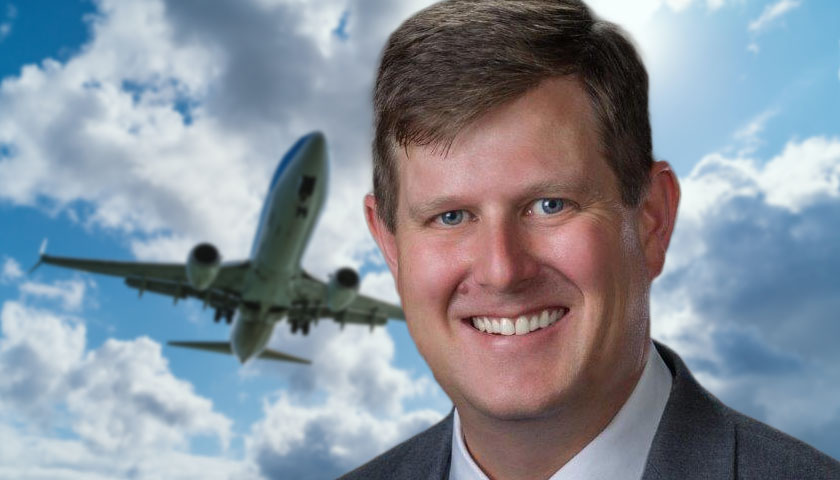The guaranteed income movement – which advocates for providing cash to low-income families with no restrictions on how they can spend it – is coming to Florida.
This year the Gainesville City Commission voted to implement a guaranteed income pilot program slated to begin in October. Gainesville Mayor Lauren Poe has been part of a national initiative, “Mayors for a Guaranteed Income,” to supply monthly, direct cash payments to people who are struggling. The Gainesville pilot program would begin by giving cash to people with criminal records and who are looking to rehabilitate their lives.
Mayor Poe is the only Florida member of the Mayors for a Guaranteed Income group.
Mayor Poe hopes that pilot programs will help sell the benefits of the program. “We’re really trying to get these pilots implemented across the country, for all different demographics and geographically different areas, because we want to have a robust data set to make the case on why a guaranteed income can lift all Americans out of poverty,” he said.
In addition, the City of Tallahassee recently began looking into a guaranteed income program as a solution to poverty. During the March 24th Tallahassee City Commission meeting, Commissioner Dianne Williams-Cox asked for more information about the success of cities using “monthly income” programs to address poverty.
Commissioner Williams-Cox noted that many cities across the country are dealing with poverty by using a program to identify or select a small group of people to receive a monthly income.
Fellow Tallahassee City Commissioner Porter added that she was aware of such programs and voiced the opinion that the pilot projects were “cool” and “extremely promising,” and something that she wished to learn more about.
Guaranteed Income Programs
Mayors in over 20 cities across the United States have pledged to advocate for cash subsidy programs through their affiliation with Mayors for a Guaranteed Income. The group was founded by Michael Tubbs, the mayor of Stockton, California, who started one of the country’s first guaranteed income programs in 2020 with funds from private donations.
Elected officials in Oakland, California relied on Stockton’s success to start the Oakland Resilient Families program which will give qualifying families $500 a month, with no rules on how they spend it. The program has so far raised $6.75 million from private donors. The program will limit participation strictly to “Black, Indigenous and other communities of color.”
Mayor Tubbs hopes that success in cities across the United States and the leadership of the Mayor for a Guaranteed Income organization will lead to a federal program. “It has to be a federal solution,” he said. “We understand that a guaranteed income is not a panacea for everything (but) is a powerful tool that provides a floor for everyone.”
Proponents say the approach provides financial stability and come without the stigma of welfare and food stamp programs. Critics argue that the approach is too expensive noting that giving each American $1,000 a month would cost $2.8 trillion a year.
Based on polling results, U.S. adults are split on the idea of a guaranteed income.
A recent Pew Research Center survey revealed that a “narrow majority of U.S. adults (54%) say they would oppose the federal government providing a guaranteed income – sometimes called a universal basic income (UBI) – of about $1,000 per month for all adult citizens, whether or not they work; 45% favor the proposal.”
The survey indicated broad and intense opposition among Republicans and support by Democrats.
However, a 2020 Hill-HarrisX poll found a majority of voters believe the government should have a universal basic income program. Fifty-five percent of registered voters in the Aug. 2-5 survey were in support of universal basic income, while 45 percent were not.
The Hill-HarrisX poll found support for the program has gradually grown in the past year. The survey found an increase in support across demographic groups, primarily among younger voters and Democratic voters.
– – –
Steve Stewart is the Managing Editor and a contributor at The Florida Capital Star. Email tips to [email protected].






If they would keep people from camping in the streets and shut down the food pantries it would be a good trade. But it is not sustainable. Giving people a pass from working is never a good idea.
What a great idea! Take money from hard working earners and give it to the freeloading riffraff. Does this smell, taste and ;look like socialism to anyone else? In a land with “earned” income tax welfare, food stamps, Medicaid, etc. etc.. In others words large scale income confiscation and redistribution, why give money so they can by large screen TV’s, $700 cell phones, and on and on? This is beyond crazy. The workers of the world should be the ones getting THEIR money back.